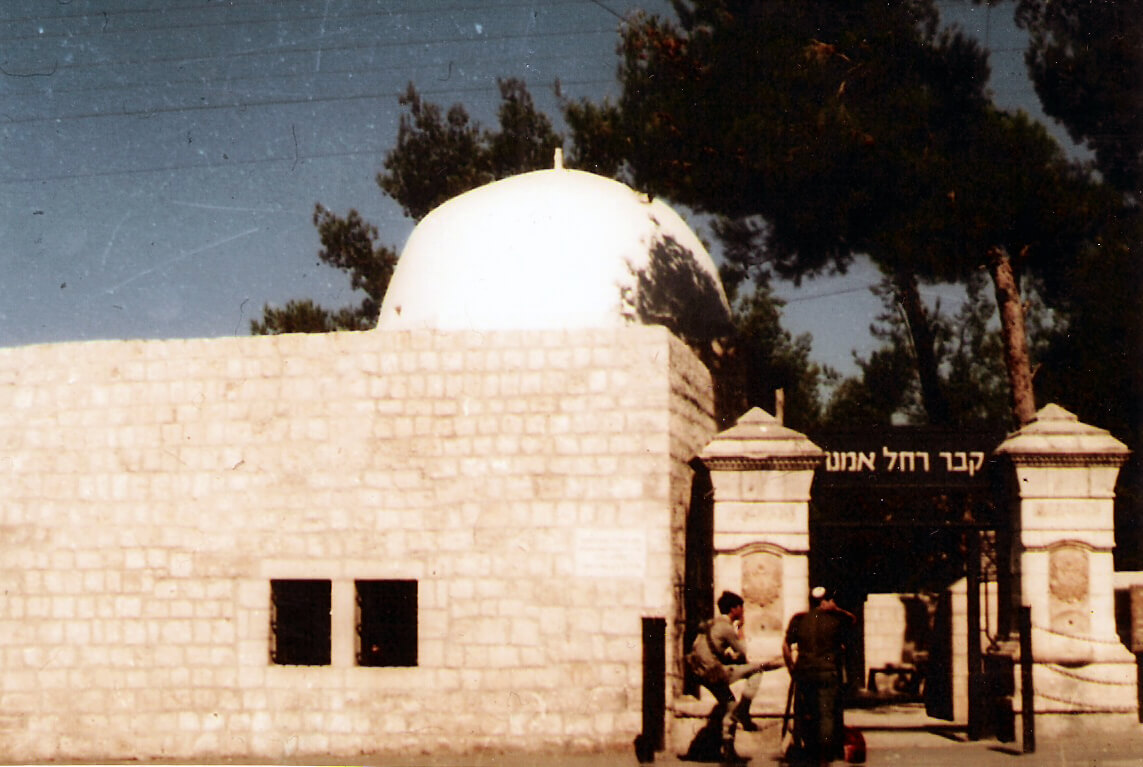At the end of the patriarch Jacob’s life, Joseph brings his sons to his father for a blessing. This scene, recorded in Genesis 48, includes a seemingly odd statement by Jacob: “And as for me, when I came from Padan, Rachel died in the land of Canaan on the road…and I buried her there in the way to Ephrath, which is Bethlehem” (Genesis 48:7).
Rashi, the great Torah commentator, notes that this was not a deathbed confession of negligence, but rather, Jacob was informing Joseph that “it was by Divine command that I buried her there…”
Rashi then refers to a series of verses from Jeremiah 31 that contain prophecy intended to comfort the Jewish people in their time of exile: “Thus says God, ‘A voice is heard in Ramah, lamentation, and bitter weeping, Rachel weeping for her children; she refuses to be comforted for her children, because they are not.’ Thus says God, ‘Refrain your voice from weeping, and your eyes from tears; for your work shall be rewarded,’ said God, ‘and they shall come back from the land of the enemy’” (Jeremiah 31:15-16).
These verses are further elaborated on in Lamentations Rabbah. The midrash relates that after Abraham, Isaac, Jacob and Moses each plead with God to rescind His decree of exile against the Children of Israel, Rachel recounts how she had not only allowed her sister to marry the man she loved [Jacob] but even assisted her sister in the deception to spare Leah any shame. “And if I, a creature of flesh and blood, dust and ashes, was not envious of my rival…why should You [God]…be jealous of idolatry in which there is no reality and exile my children and let them be slain by the sword.’ The midrash then concludes that, ‘Forthwith, God’s mercy was stirred, and He said, ‘For your sake, Rachel, I will restore Israel to their place…’”
Tomorrow, the 11th of MarCheshvan, is the yahrtzeit of the Matriarch Rachel.

Copyright © 2012 National Jewish Outreach Program. All rights reserved.
Related Posts
Influence
Be aware of how you are affected by other people’s actions and avoid being unduly…
0 Comments1 Minute
Rachel’s Tomb
Kever Rochel, the Tomb of Rachel, in Bethlehem is considered to be the third holiest…
0 Comments3 Minutes
Rachel’s Curse
Reward and punishment are complicated concepts. Suffice it to say that Divine…
0 Comments2 Minutes
 Print This Page
Print This Page